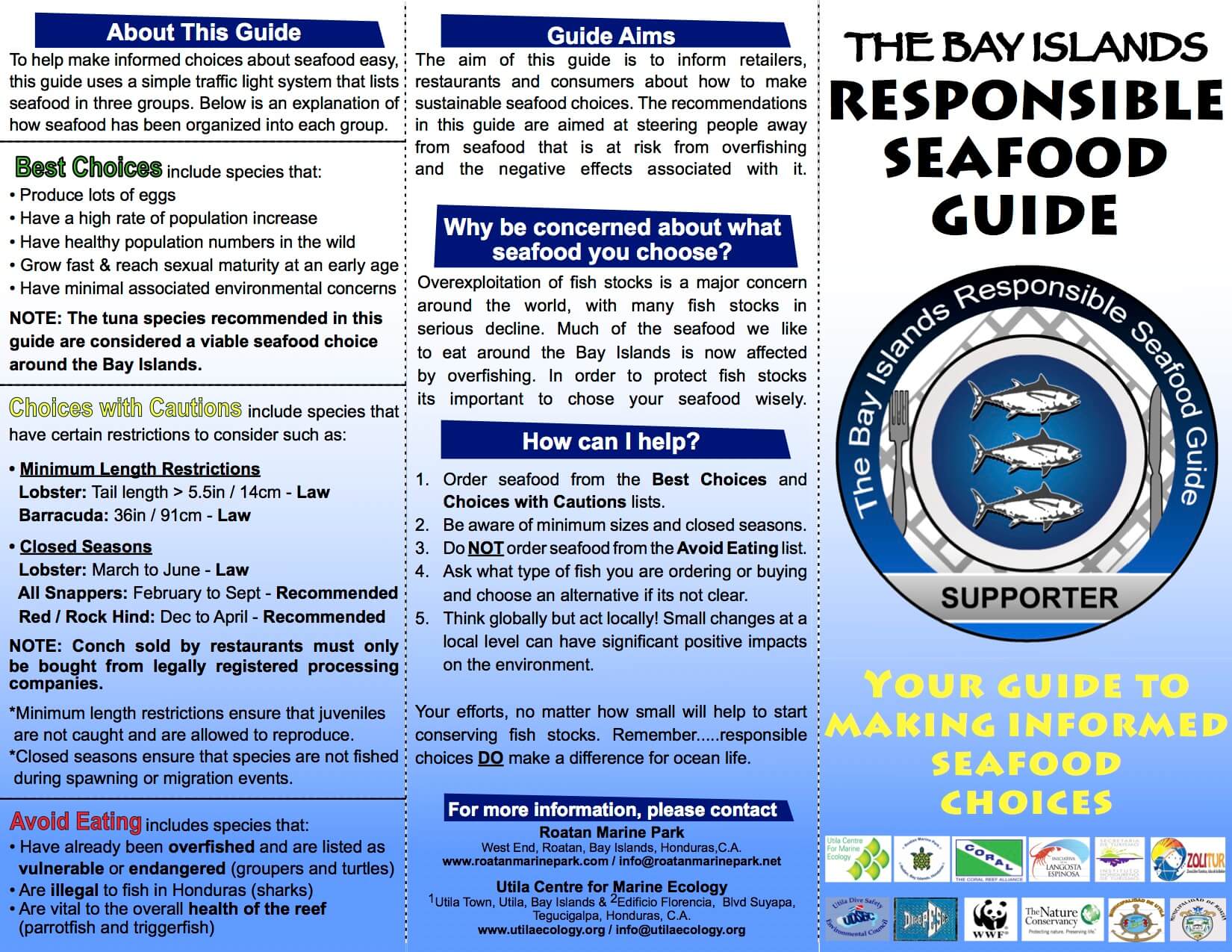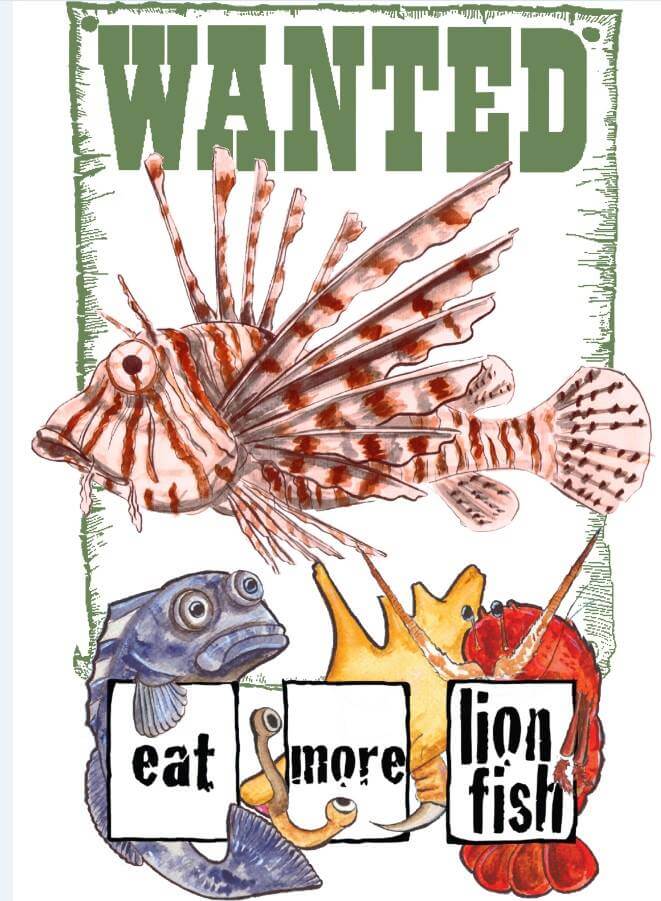When is Roatan's Lobster Season?
Demand for lobster is high, and the restaurants will continue to serve illegal lobster as long as patrons continue to request it. It's our responsibility as visitors to encourage responsible and sustainable seafood consumption so that local providers providers will follow suit, benefiting both the environment and the local economy.
All marine reserves have fishing regulations, and Roatan is no different. While most people come to the Caribbean with the thought of eating lobster on the beach, it's important to know when Roatan's lobster season is, and what the lobster regulations are even when they're in season, to ensure that you are not putting an additional strain on the environment and ruining the marine world that Roatan is renowned for.
Lobster is in season on Roatan from July 1st to February 28th (or 29th on leap years), and only fishermen with lobster fishing permits are allowed to catch lobster outside of the Roatan marine reserve. Their tails must be greater than 5.5 inches, or 14.5 centimeters in length. Undersized lobsters are illegal, regardless of if a permit carrier catches them, and it is illegal to go diving for them within the reserve.
Poached lobster, photo courtesy of Roatan Marine Park
Unfortunately, demand for lobster is high, and the restaurants will continue to serve illegal lobster as long as patrons continue to request it. It's our responsibility as visitors to encourage responsible and sustainable seafood consumption so that local providers providers will follow suit, benefiting both the environment and the local economy.
How do I enjoy lobster responsibly?
- Only enjoy fresh-caught lobster between July 1st and February 28th and NOT between the months of March and June.
- When dining in Roatan, ask the restaurant where the lobster was caught. If they respond that it's locally caught, ask about the size of the tail. Remember, they must be larger than 5in/14.5 cm.
- Look around your restaurant for displays of the Bay Islands Responsible Seafood Guide.
- Keep an eye out for warning signs - if you're served lobster that still has its head, it is most likely poached from local, protected waters. Report suspicious activity to the Roatan Marine Park.
For more information regarding Roatan's fishing regulations and environmental laws, go to the Roatan Marine Park's website and learn how to be a responsible tourist today.
The Bay Islands Responsible Seafood Guide
Whenever you visit somewhere new (or even at home), it's important to think about responsible consumption when you're making your dining choices. The Bay Islands developed a helpful visual guide to point out which fish in these waters that are the best options and which are ones that should be avoided. Have a look before you dig in!
Whenever you visit somewhere new (or even at home), it's important to think about responsible consumption when making your dining choices. Overfishing has run many of the waters around the world dry, and responsible seafood recommendations have been put in place all around the world to help combat, or at least slow, the killing of our marine ecosystem.
The Bay Islands developed a helpful visual guide to identify which fish make the best options and which ones should be avoided. Let's have a look before you dig in at the dinner table!
From the Best Choices list, the fish we enjoy eating and frequently find are responsibly fished here in Roatan are:
Tuna
Lionfish
Wahoo
Mahi Mahi
When you are dining out here in Roatan, look for this visual guide which is proudly on display at many local restaurants. Tuna is a great example of a popular and plentiful fish here, but in other parts of the world is sadly often overfished. Keep in mind, a fish that might be a responsible choice in some areas might NOT be in other geographic areas. It really can vary.
We caution or discourage guests from the following items that are commonly poached, caught illegally, overfished, or caught without meeting the proper restrictions.
Conch
Lobster (Only in season from July through February)
Snapper
Grouper
Below you will find a detailed guide with more information and learn how you can get involved. Without the demand for fish that are at risk, there will be no supply! Please think how you can help protect Roatan's local fish populations by sharing this with others and making responsible seafood choices when you dine out.
Eat More Lionfish
We couldn't resist the opportunity to encourage our seafood enthusiasts to give this tasty fish a chance. The fillet is not very oily or fishy tasting, so there is a lot of variety for how it can be prepared and the flavors you can enjoy!
Interested in hunting lionfish to help bring this invasive species directly to your plate at home? Learn how you can obtain a Bay Islands Lionfish Spearing License from the Roatan Marine Park's Invasive Lionfish Control Program.
Bay Islands Lionfish Spearing License
As a marine reserve, it's illegal to spearfish in the Roatan Marine Park. Lionfish are the exception, since they have no natural predators in the Americas and their venomous spines provide a strong defense against potential predators.
The lionfish is a majestic creature. With beautiful coloring and amazing structure, there is something magical about watching a lionfish riding the current off the reef. If you're diving in Southeast Asia or Australia, it's always a delight to see these fish, and as professional divers, we love pointing them out to our guests.
However, as many of you know, lionfish are not endemic to the Caribbean. There are many viable theories as to how they were released, but most point to the private aquarium trade. As a result of them accidentally being released in this area, their numbers have exploded and people all over the Caribbean and Americas are struggling to curb their population.
Photo credit Roatan Marine Park
As a marine reserve, it's illegal to spearfish in the Roatan Marine Park. Lionfish are the exception, since they have no natural predators in the Americas and their venomous spines provide a strong defense against potential predators. As a result, the Roatan Marine Park Invasive Lionfish Control Program was developed as a proactive measure to get the local community, snorkelers, and divers involved in helping curb lionfish numbers in these waters.
To obtain your Bay Islands Lionfish License, you start by attending a workshop conducted by the Roatan Marine Park that teaches you about proper spear usage, education on hunting regulations, and includes an in-water skills assessment using coconuts as target practice. In the water, it's important to demonstrate good spatial awareness and buoyancy, since the purpose of hunting lionfish is to protect the reef, and if you're banging all over it and killing the coral, it defeats the purpose of this program. The Roatan Marine Park Lionfish License is $50 and includes a registered spear, the workshop and your license, which is valid for 2 years. The Roatan Marine Park normally runs these workshops twice a week from their Eco Store in West End based on interest, but they can run special workshops for larger groups as well.
We love it when we hear divers express an interest in lionfish hunting. From eating a tasty sustainable guilt-free fish option to competing in our annual Roatan Lionfish Derby, or for the thrill of the hunt while helping defend the reef, there are so many good reasons to support Roatan's lionfish program. Talk to your dive center and see how you can get involved today!
Should I buy a Roatan Marine Park yearly bracelet?
Short answer: Yes. Yes you should.
Oh, you wanted a long answer? Read on!
Short answer: Yes. Yes you should.
Long answer: Why wouldn't you buy a Roatan Marine Park yearly bracelet? They're only $10 and all the proceeds go towards the running of the park. The Roatan Marine Park is a non-profit organization that installs all the dive moorings, runs patrols to patrol the local wildlife and works with the local community to move us towards a conservation oriented island.
So if your boat ties up to a mooring, or you see a turtle or lobster or conch, or notice how the mangroves are starting to grow back...then of course you should support the Roatan Marine Park. The bracelets are only $10 and all the proceeds go directly into helping the park continue its good work. The park is one of the best run that we've seen, and we believe it has a lot to do with the fact that it's run by a non-profit, non-governmental organization full of passionate people, and we'd like to keep supporting it.
Do your part, support the park!







